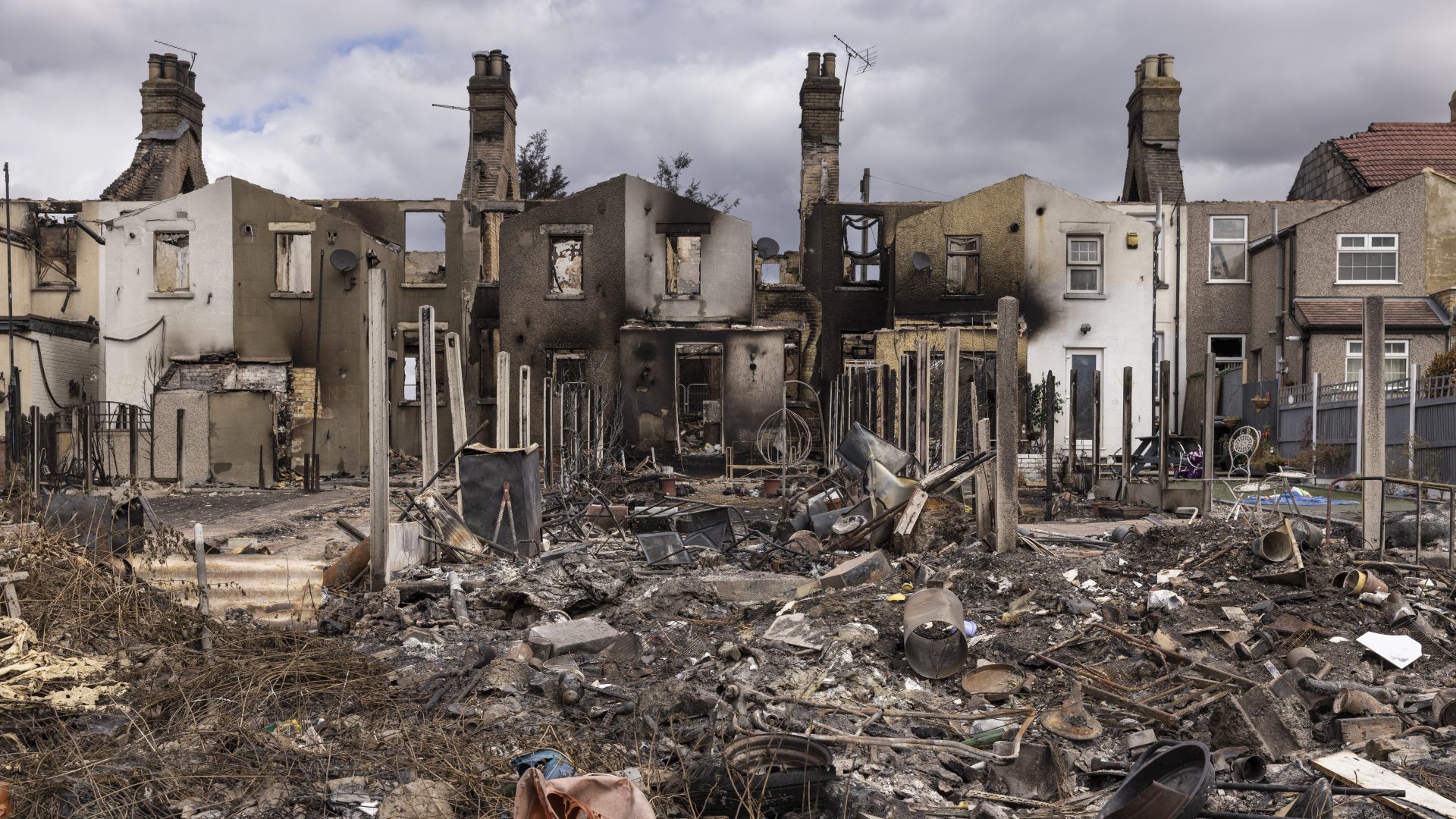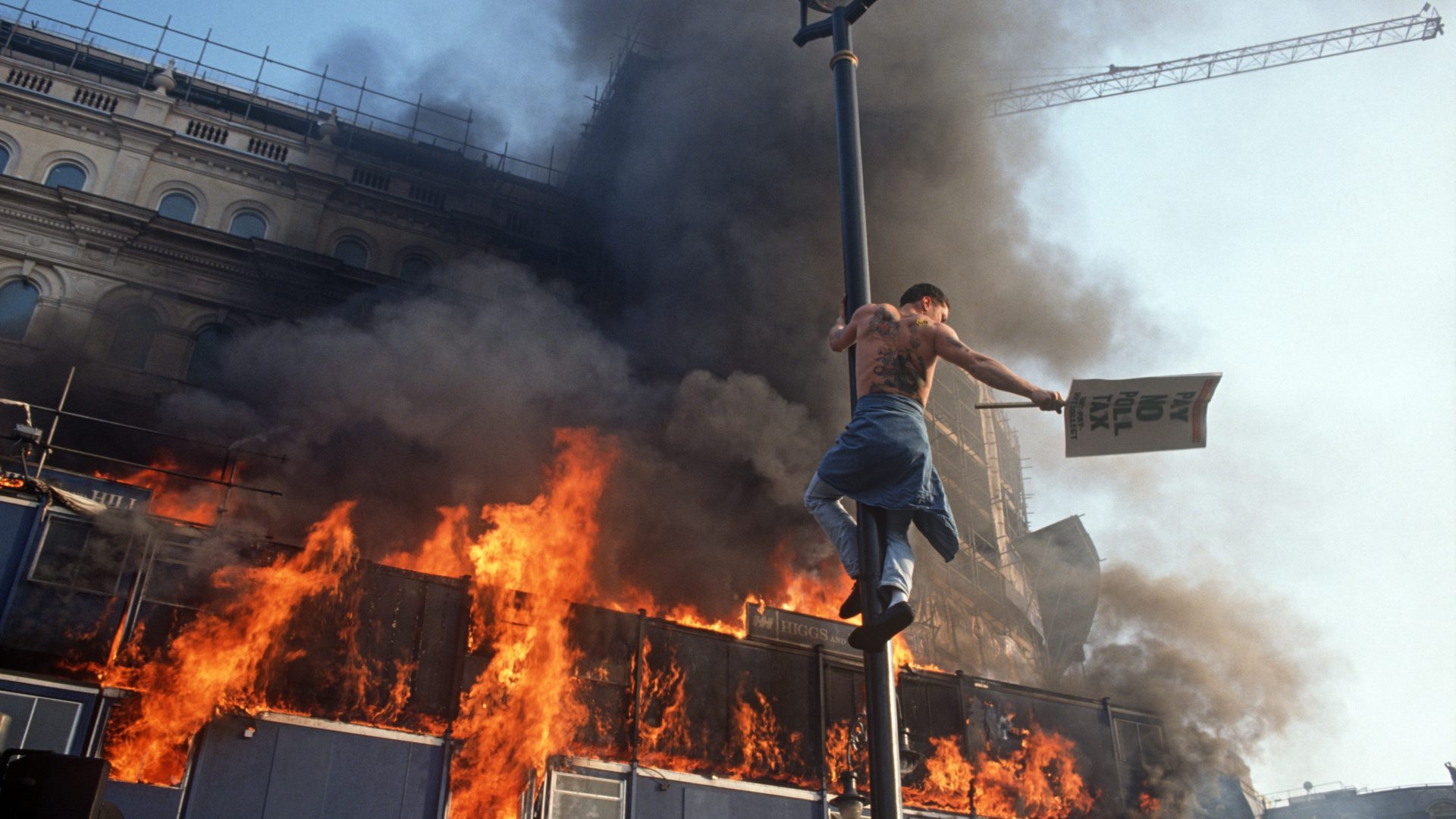On November 10 1855, reported the Pembroke Herald, “a fatal accident occurred to a poor man named James Warlow, whilst sinking a coal pit at Trefrane”. The six-metre shaft, dug precariously into a cliff overlooking the spectacular beach at Newgale, fell in and smothered him.
But, in the 19th century, nothing could stop the relentless search for coal: the free energy that had revolutionised industrial productivity. So the pit was dug: a 100-metre shaft, a steam engine and a brick chimney. A workforce of 35 men and four women had worked it to extinction by 1907.
I regularly take friends to scramble through the lush vegetation around the chimney to explore bits of the infrastructure. It’s invariably damp, green and – where the shaft was – swampy. And there is coal dust everywhere.
Last Sunday the coal had its revenge. After a week of hot weather, the temperature surged above 30 degrees and the wind got up. By mid-afternoon, brown smoke was billowing from the cliff. By early evening fire crews from across Wales were fighting the blaze, with the sun obscured by smoke.
Everyone’s tap water turned temporarily brown, and flakes of ash began to fall like snow on the campers, holidaymakers and locals. At the same time, 100 firefighters were fighting a fire in a waste dump in nearby Milford Haven and numerous grass fires broke out across west Wales – one of the wettest regions of the UK.
This is not normal. This is not 1976. This is what happens when climate change reaches the stage of disrupting ordinary life in a temperate country. Two years ago Storm Dennis sent tides surging over a five-metre high berm of shingle at the same beach, blocking the A487, which links the city of St Davids and the town of Haverfordwest.
Since 2014, when a bus was hit by a wave, the future of the road has been under threat due to rising sea levels, again due to climate change. The council expects the shingle bank, which was formed during the ice age and is kept in shape by JCBs after every storm, to collapse some time in the 2030s, leaving the small local community as marooned as the extinct coal mine.
For large parts of history, humans lived in, and transformed the west Wales landscape sustainably. They made laverbread from seaweed and dammed streams to create water meadows for their sheep. They hacked the coal out of the cliffs only to heat their homes. And they carted it along deep, narrow lanes bordered by hedgerows built centuries ago. They milled gorse with water wheels for their cows to eat.
But in the space of 200 years, the carbon economy has simultaneously revolutionised human life on Earth and brought us to the point where the Earth is in revolt against us.
The cliffs are crumbling. The sea is surging in. Deep gullies normally full of ferns and gorse stand blackened. But it’s happening slowly, so the SUVs keep rolling along these country lanes; the slushies at the beach still come in throwaway plastic containers; the kids ride the surf on polyester bodyboards destined for landfill.
Ι count myself as ultra-aware on climate change. I know the task of decarbonising an economy like south-west Wales – dependent on oil refining, car tourism and agriculture – is going to be challenging. But it was not until I saw fire billowing on the horizon last Sunday that I realised how critical the next decade is going to be.
The CO2 emitted by Trefgarne pit, in its 50-year lifecycle, helped move the global average temperature to 1 degree above its pre-industrial norm. But it’s the carbon we’re emitting now that will drive global temperatures high enough to create chaotic feedback loops in nature and society between now and the mid-century.
Yet we’re ruled by a political party whose members are seriously still attracted by the idea of “cutting the green crap”, reneging on the carbon target, and fracking their way to oblivion.
The current energy security emergency, and the cost-of-living crisis it has sparked, will rightly focus the short-term attention of policymakers on the economic costs of energy. But in the medium term this summer of fires, and the inevitable autumn of floods that will follow, should make a slam-dunk case for rapid transition to renewables.
It will cost money. Probably more than the £28bn a year Labour wants to borrow over the next decade. But the clue is in the word “renewables”. The sun, the wind and the waves don’t exhaust themselves like a seam of coal. Once humanity makes its second big energy transition we can move permanently away from reliance on fuels with unpredictable side-effects.
But the biggest change has to be psychological. The carbon age has left psychological patterns in us that will take generations to erase. You can see them in the behaviour of the dads monopolising the charcoal grills and fire pits on campsites. We love the thrill of seeing stuff go up in flames. A field full of solar panels, as Liz Truss admitted, provokes disappointment.
Complex natural systems change suddenly. They mutate, as small quantitative changes in temperature combine to produce dramatic storms, floods and fires, so that at some point they overwhelm the simple human systems, like fire brigades and water pipes, designed to manage these events.
On the morning before the fire, I saw an otter splashing around in the sea, just south of the old mineworkings. I’ve been seeing otters there since the 1990s so, presumably, they’re supposed to be as permanent as the seals, gannets, mackerel and kelp that form the ecosystem. I don’t know whether the otter survived the fire but a significant part of its habitat is burnt to cinders.




